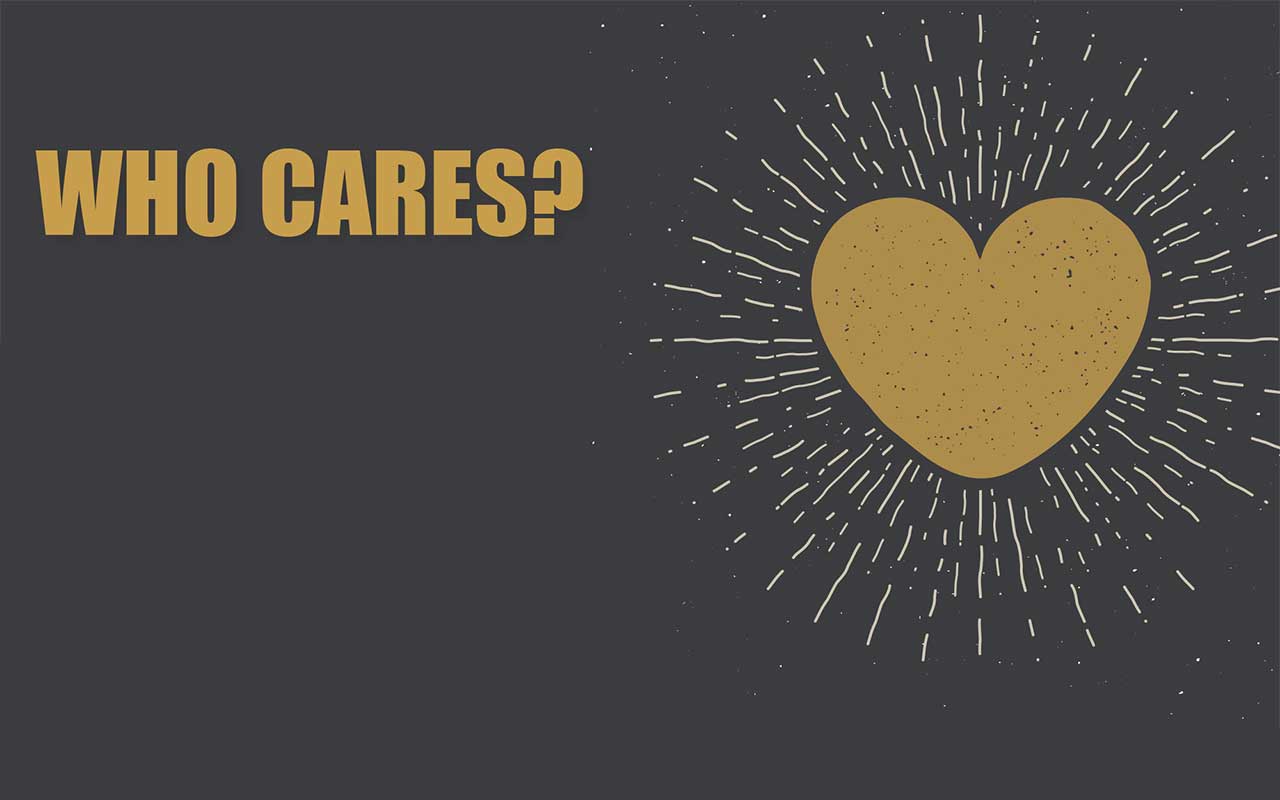At Large

Who Cares?
There are powerful rhythms in art, music, and literature that certainly don’t subscribe to a strict 4/4 time. Images will reappear years after we first see them. Passages from books that were favorites a decade ago will suddenly manifest themselves in an article, a quote on the late news, or a weather-worn bumper sticker on the car ahead of us at a traffic light. A song, long receded back into our memories will suddenly reappear and resonate, once again.
There are times, in this free-form explosion of rhythm that beats intersect … a kind of timpani strike that serves as a wake-up call or, if we’re fortunate, a moment of insight.
The evening news, the artificial intelligence-generated play list in the ear buds and a troublesome “Top 25” article online created one of those moments recently, and we thought we’d share.
A moment from the six o’clock news
First, the news. The world watched in grim silence as Russia’s Vladimir Putin welcomed North Korea’s Kim Jong Un to an advanced rocketry center in Russia. The footage, supplied by Russian state media, looked like an infomercial – all smiles and pointing and nodding and hand shakes and applause. At the core of the meeting was not diplomacy. It was the sale of sophisticated arms that Russia could use in its on-going invasion of Ukraine. So many rockets and shells have been expended in their murderous effort to overcome Ukrainian democracy that Putin was shopping. Kim Jong Un was selling. The network commentator noted that should a deal like this be realized, both leaders would be in violation of international law.
They don’t care.
Message from a “golden oldie”
Into the car for a series of domestic errands, and the designated satellite station grabs songs from the past 40 years, settling on Bruce Hornsby and The Range recalling “The Way It Is.” It’s a three-part exploration of the calloused attitudes of the “haves” when confronting the “have nots.” From welfare recipients to the socially rejected to those diminished because of their race, the response to the encounter is the same. It’s simple enough. You need. I have.
I don’t care.
Online amusement
And, then, the list. Normally we’re mildly curious when the banner reads “10 best” or “25 worst.” The first question is usually “by whose standards?” Aside from that, this list was intriguing because it listed the top 25 books that have been banned over a period of years in this country. There seems to be a revival of officials deciding that certain books are not for public consumption, particularly in a few states with a history of knee-jerk reactions on a number of topics.
So, a list that stretched back over decades was of interest. There were the expected old standards: Lady Chatterly’s Lover, To Kill a Mockingbird, Lord of the Flies. Then, there was a title with which we had a personal relationship. Where the Wild Things Are by Maurice Sendak.
What? It’s a classic, people. It gives young readers the chance to explore their feelings and come to a positive, reassuring ending. Get real!
In another life, we had the opportunity to work with Sendak when several of his books were used as the basis of a network television special, Really Rosie. Woven into that script were the four “Nutshell Library” books that Sendak had created early in his career, well before Wild Things. The hero of one of those tiny, timeless volumes was a young man named Pierre who used one line to meet every question.
“I don’t care.”
Eventually, Pierre learns to care. This is a very short book, after all, and it moves decisively to a conclusion. It’s a positive message for every petulant three-year old who goes through the emotional trials of growing up. It’s apparently, however, a message that has not been received by a number of alleged adults in our society … in world leadership … dare we suggest in national leadership, as well?
Through the wandering that preceded this reflection, we stumbled on two quotes that might have a momentary impact on a day. These rather sum up that serendipitous collision of music and literature and current events.
The first is from a 1975 volume enticingly titled Risk Management: Concepts and Applications. Frankly, not on the bedside reading stack at the moment. Co-author R. I Mehr is credited with this line, “A person has a duty to use care in dealing with others, and failure to do so is negligence.”
And, finally a glimmer of hope on an otherwise somewhat murky tale. Back to Bruce Hornsby and the refrain for his haunting song. Rather than dismiss us all, it considers the challenging concept that caring may just be possible.
That’s just the way it is
Some things will never change
That’s just the way it is
Ah, but don’t you believe them.
